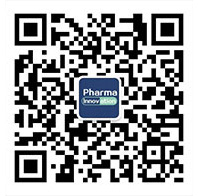Roche hands $1B to Sarepta in major return to gene therapy deals
Roche hands $1B to Sarepta in major return to gene therapy deals
Roche wasted no time in getting back into the gene therapy game. After the Federal Trade Commission cleared the way last week for it to acquire Spark Therapeutics and its portfolio of treatments for genetically driven diseases, Roche followed up Monday with a massive $1.2 billion collaboration with Sarepta Therapeutics for the biotech's experimental Duchenne muscular dystrophy gene therapy.
The scale of the deal confirms Sarepta's asset has a clear lead in DMD as its rivals have stumbled: $750 million in cash and a $400 million share purchase gives Roche rights to the therapy, called SRP-9001, in markets outside the United States. The collaboration will also include cost sharing for global development, and up to $1.7 billion in regulatory and sales milestones, with royalties on sales estimated in the mid-teens percentage.

Sarepta CEO Douglas Ingram estimated the total value of the deal could amount to $10 billion. "It's a number one gets to fairly easily with even modest penetration ex-U.S.," Ingram told analysts on a conference call Monday.
The deal establishes Swiss pharma companies as the biggest global players in gene therapy. Cross-town rival Novartis bought AveXis for $8.7 billion for the spinal muscular atrophy treatment Zolgensma, and with the $4.8 billion acquisition of Spark, Roche got Luxturna, a gene therapy for a rare form of blindness, as well as experimental drugs for hemophilia.
Moreover, the deals reveal a race in rare forms of degenerative diseases. Roche has rights to a non-gene-therapy treatment for SMA called risdiplam, while with AveXis, Novartis acquired assets to treat Rett syndrome and amyotrophic lateral sclerosis.
The Sarepta deal came after a "robust, competitive process," Ingram said, although he did not reveal what other bidders were involved. Big pharma's interest in SRP-9001 was probably heightened by the struggles of other experimental gene therapies: Solid Biosciences' SGT-001 is under a clinical hold from the Food and Drug Administration and Pfizer's also has had safety complications.
In addition, Ingram said the company's plans to market independently worldwide helped lift the value of the winning offer.
A Roche spokesperson said the timing of the Sarepta announcement was not related to the FTC's decision last week to clear the Spark deal.
With Roche, Sarepta believes it can reach markets that it couldn't have on its own, such as China. "There are 60,000 DMD patients living in China," Ingram said. He acknowledged, however, that "Roche has a lot of work to do before it figures out how to get to China."
SRP-9001 is currently in a placebo-controlled trial. The company plans on initiating a trial using the commercial gene therapy supply in mid-2020.
Sharing clinical development costs also will be essential to establishing the clinical benefit of SRP-9001. "We're doing a very significant set of other studies that gets at ambulatory patients, non-ambulatory, younger kids, older kids" Ingram said. "It's multi-national, multi-center and much larger than [the current clinical trial]. There is a significant amount of research [funding] requirements."
Sarepta shares rose 8% to $136.15 apiece in late morning trading today. Roche paid $158.59 a share as part of its equity investment.

